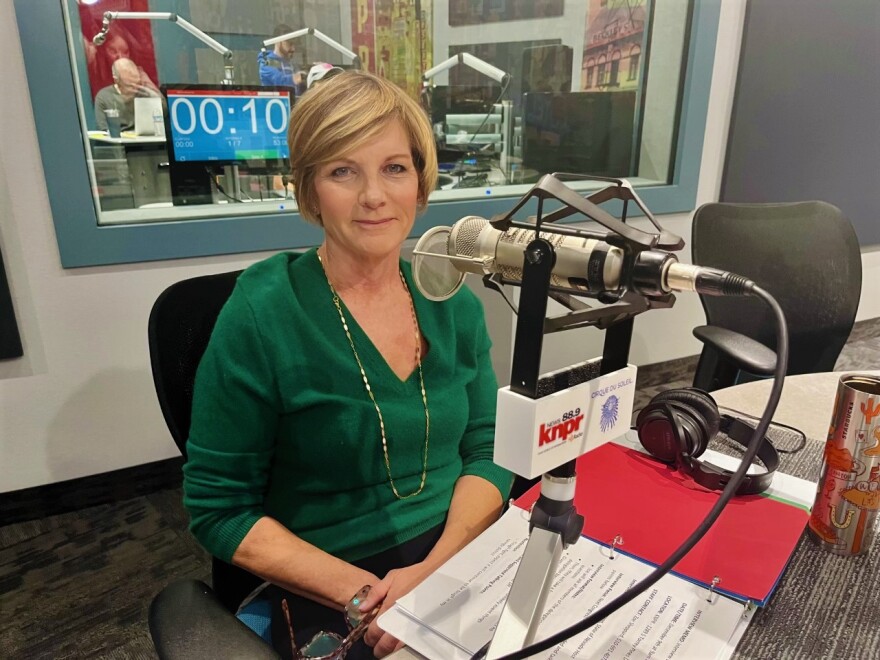Members of the U.S. House of Representatives go on holiday break next week, but when they return in January, things will be very different: Republicans now control the House, with Democrats in the minority.
That’s big for both parties. But more than that, there’s a sense that because of how the November elections turned out, the way Congress works could change.
If you heard NPR’s Morning Edition on Friday, you heard a major Republican supporter say that Americans are tired of “hardcore partisanship; they want to see people solving problems … voters are in the mood for constructive, competent leadership … get the job done and leave us alone.”
Does that mean the sniping, the hardline stands, could be easing, and that more compromise could be on the way?

On Friday morning, all four members of Nevada’s congressional delegation joined State of Nevada host Joe Schoenmann. That’s Mark Amodei, a Republican representing most of Northern Nevada, and Democrats Dina Titus, Steven Horsford and Susie Lee, who represent the majority of Nevada’s population in Southern Nevada.
"Any member of Congress, I believe everyone in this delegation believes this, our goal is sustainable policy. … I think in order for us to move this country forward … we have to find areas where we can agree on," Lee said on the topic of compromise.
Amodei said disagreement to the point of shutting down the government does nothing productive. He and Lee sit on the House Committee on Appropriations, a bipartisan committee tasked with passing bills which regulate government spending.
"I think there are the vast majority of the Congress of the conference that I belong to, that are like, 'Hey, you still have to govern,'" he said. "While everybody's having a good time in the media, speculating on how dysfunctional things are, and some days, we provide plenty of ammo for that. I think when push comes to shove, your color that you referred to earlier is like, hey, if Republicans don't deliver with their majority in the House the same way the Democrats did under Nancy Pelosi for four years, then it's going to be a tough day in the [2024] election."
Titus, who described herself as an optimist, didn't fully agree.
"To people like [George Rep. Marjorie] Taylor Greene, compromises a hanging crime. … They are not willing to compromise and their supporters are not willing to compromise. I'm an optimist, or I wouldn't be in this business, and I look for Republicans who are moderate or have things in common with me," she said. "In the end, it becomes about how you spend the money or where you spend the money."
Horsford said they need to work together to move forward, and that economic development continues to be a priority for him for next year's 118th Congress.
"My commitment … is to focus on economic growth and opportunity for everyone," Horsford said. "I'm proud that we're leading the nation in economic growth and recovery, and we need to stay on that trajectory. Our delegation will always put Nevada and Nevadans first. We will see exactly what the Republican House majority will choose to do. But regardless of their agenda, we will make sure that economic growth — jobs, jobs jobs — remain the priority for Nevada."
Amodei said 70 to 75% of the issues can be bipartisan, but "it's easier politically to demagogue both sides." He said they need to have a focus on immigration. (Here's how Amodei approaches immigration on his website.)
Lee acknowledged the immigration system is broken, and that is "at the feet of both Democrats and Republicans." She said they haven't been able to compromise on DACA and DREAMers, which affects more than 12,000 Nevadans.
"I've always maintained that the best border security we could implement would be comprehensive immigration reform," she said.
On the topic of water in the Colorado River, Titus said in the Inflation Reduction Act, there's $4 million for drought mitigation and resiliency projects.
"There's money for doing a big project where you have Nevada and California working together on a big recycling water issue. You got to remember that water policy is made at all levels. You mentioned, the state of Nevada, we have our water engineer, we've been trying to negotiate our share of the Colorado River. Nobody imagined that people would live here in the Las Vegas Valley when they made those allocations."
There's a major water conference in Las Vegas this coming week at Caesars Palace and water rate hikes are coming in January, which will greatly impact the biggest users in Southern Nevada.
Lee noted other recent federal investments, including $50 million for the lower basin to conserve water, but said there's more work to do, and it needs to be a priority for all of the delegation.
Hear more from Lee, Titus, Horsford and Amodei in the full interview above.












